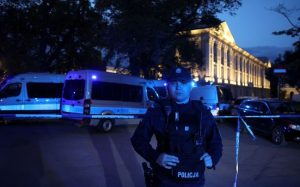Chad votes in parliamentary election
3 min readChadians voted on Sunday in a parliamentary and regional election that marks the end of a three-year transitional period from military rule. However, the election has been met with controversy, as the main opposition parties are boycotting it, accusing the government of failing to ensure a credible electoral process.
This election is significant as it is the first parliamentary vote in more than a decade for Chad. It comes months after Mahamat Idriss Deby, the current leader and son of the late president Idriss Deby Itno, won a disputed presidential election meant to restore democracy to the country. Mahamat Deby assumed power in 2021 following the sudden death of his father, who had ruled the country for over 30 years. Chad, an oil-rich nation of 18 million people, has not experienced a peaceful and democratic transition of power since its independence from France in 1960.
The parliamentary election is part of a broader effort to fulfill the promises of returning to democratic governance, a pledge made by the military-led government. This election is one of the first among Sahel countries in Africa to hold a much-delayed return to civilian rule, following years of military control. However, the credibility of the electoral process has been questioned, with many opposition groups choosing to boycott the vote.
Over 8 million voters were registered to choose 188 legislators for Chad’s new National Assembly. Elections for provincial and municipal representatives were also held. The results of the election are expected to be announced within two weeks. Despite the large turnout of registered voters, over 10 opposition parties, including the key Transformers party, are not participating in the election. The Transformers party, led by Succes Masra, has criticized the election, calling it a “charade” and an effort for Mahamat Idriss Deby to solidify his grip on power and continue his family’s political dynasty.
Succes Masra, who came second in the controversial presidential election earlier this year, had briefly served as prime minister after returning from exile but resigned to run for president. He strongly opposed the parliamentary election, alleging that the results would be manipulated. On the eve of the vote, he told supporters, “It is better to stay at home,” urging them to boycott the election. He and other opposition groups argue that participating in the elections under these circumstances would effectively endorse a “forced power” that lacks legitimacy.
The opposition coalition, the Group of the Cooperation of Political Actors (GCAP), also echoed these sentiments, disputing Mahamat Deby’s presidential victory. GCAP spokesperson Max Kemkoye stated, “Presenting candidates in these elections that are lost in advance is to endorse a forced power which seeks to be legitimate.”
This election comes at a crucial time for Chad, which is grappling with various security challenges. These include attacks from Boko Haram militants in the Lake Chad region and tensions arising from a rupture in its long-standing military alliance with France, a key partner in the fight against terrorism in the region.
Political analyst Mahamat Oumar Adam emphasized that the primary concern in this election is the potential for a prolonged transition that could undermine Chad’s progress toward democracy. He noted that while the transition process started in 2021, it has included several key steps, such as a national dialogue in 2022, a constitutional referendum in 2023, and this year’s controversial presidential election. Adam pointed out that although the parliamentary election marks the last stage of this transition, the lack of opposition participation is a significant issue that raises questions about the legitimacy of the electoral process.
The opposition’s boycott and the criticisms of the electoral process reflect deep divisions within Chad’s political landscape. While the government views the election as a step toward restoring civilian rule, critics argue that the absence of a credible opposition undermines the prospects for a fair and inclusive democracy.
As Chad navigates its way out of military rule, the outcome of this election will likely have long-term implications for the country’s political future. With the opposition’s boycott and the allegations of election manipulation, the path toward a fully democratic Chad remains uncertain. The international community will be watching closely to see whether the election results are seen as legitimate and whether Chad can eventually achieve the democratic transition that many of its citizens desire.





